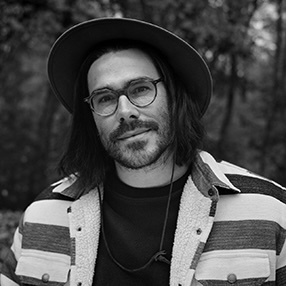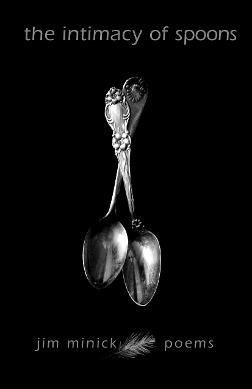Book Review
Twenty years ago, monarch butterfliesglided these fields, thistle to thistletoo many to count;now they are too few.
I save milkweed, look for eggs,but what will remaintwenty years from now?Goodbye doesn’t have to bethe only way to say love.
The fluke is no fluke—this happens all the time,these miracle windowswe never look throughexcept this once.
Music connects these poems directly, whether the music of spoons, of lungs, and particularly of birds which flock and murmurate and exaltate, roosting and singing in poem after poem.
Thoreau was wrongto focus just on dawn.To wake to an infiniteexpectation of duskis also another way.
Slowly your breathing softens, fallsinto that space of sleepwhere you twitch in dreamsand I hold on.

Matthew Wimberley grew up in the Blue Ridge Mountains. He is the author of two collections of poetry, Daniel Boone's Window (LSU, 2020) selected by Dave Smith for the Southern Messenger Poetry series, and All the Great Territories (SIU, 2020), winner of the 2018 Crab Orchard Poetry Series First Book award and winner of the Weatherford Award. Winner of the 2015 William Matthews Prize from the Asheville Poetry Review, his work was selected by Mary Szybist for the 2016 Best New Poets Anthology, and his writing has appeared most recently or is forthcoming in: 32 Poems, Image Journal, Poem-a-Day from the Academy of American Poets, and The Threepenny Review. Wimberley received his MFA from NYU where he worked with children at St. Mary's Hospital as a Starworks Fellow. He teaches in western North Carolina.
_____________________________________________
Home Archives Fiction Poetry Creative Nonfiction Interview
Featured Artist Reviews Multimedia Masthead Submit
_____________________________________________

